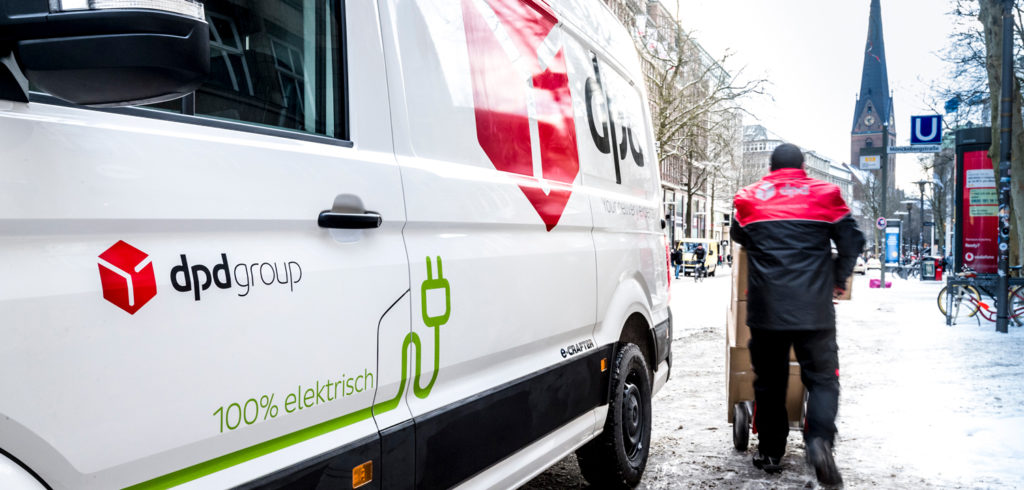DPD Germany has unveiled its plans to only use electric vehicles or ‘man power’ to make deliveries in the inner-city districts of Hamburg.
The changes will be implemented by summer 2019 in the districts of Altstadt, Neustadt, Hafencity, St Georg and Hammerbrook. The mixture will include small vehicles such as cargo bikes and e-scooters, as well as larger vehicles such as fully electric vans and trucks.
The purchase of the vehicles is partly subsidized under the scope of the Zukunft.de initiative, a program by the city of Hamburg to electrify parcel deliveries along the last mile. A number of micro depots scattered across the urban delivery areas will further assist the local distribution of parcels by small, electrically powered vehicles.
Boris Winkelmann, CEO of DPD Germany, said, “E-mobility can be an important answer to the growing challenges of urban parcel delivery. After numerous tests, we are now switching to fully electric vehicles in Hamburg’s city center. We also hope that this will provide us with valuable insights into the long-term performance of various electric models, especially when it comes to large-scale collection and delivery of parcels for commercial shippers and consignees.”
DPD’s zero-emission parcel delivery operations in Hamburg’s inner-city will replace 10 conventional delivery rounds. The existing diesel vehicles will be replaced by VW e-Crafter vans with a range of up to 160km (99 miles). DPD will also deploy electrically powered cargo bikes, e-scooters and e-trucks for making deliveries on behalf of large business customers.
DPD is now hoping for greater support from the municipalities in the establishment of alternative delivery concepts, particularly in the search for suitable locations for micro depots.
“Parcel services are already indispensable for cities today, and they are becoming increasingly important both for residents and for retailers,” said Winkelmann.
“It is essential for cities and municipalities to play an even greater role in working with us to find constructive solutions for the parcel deliveries of tomorrow.”


